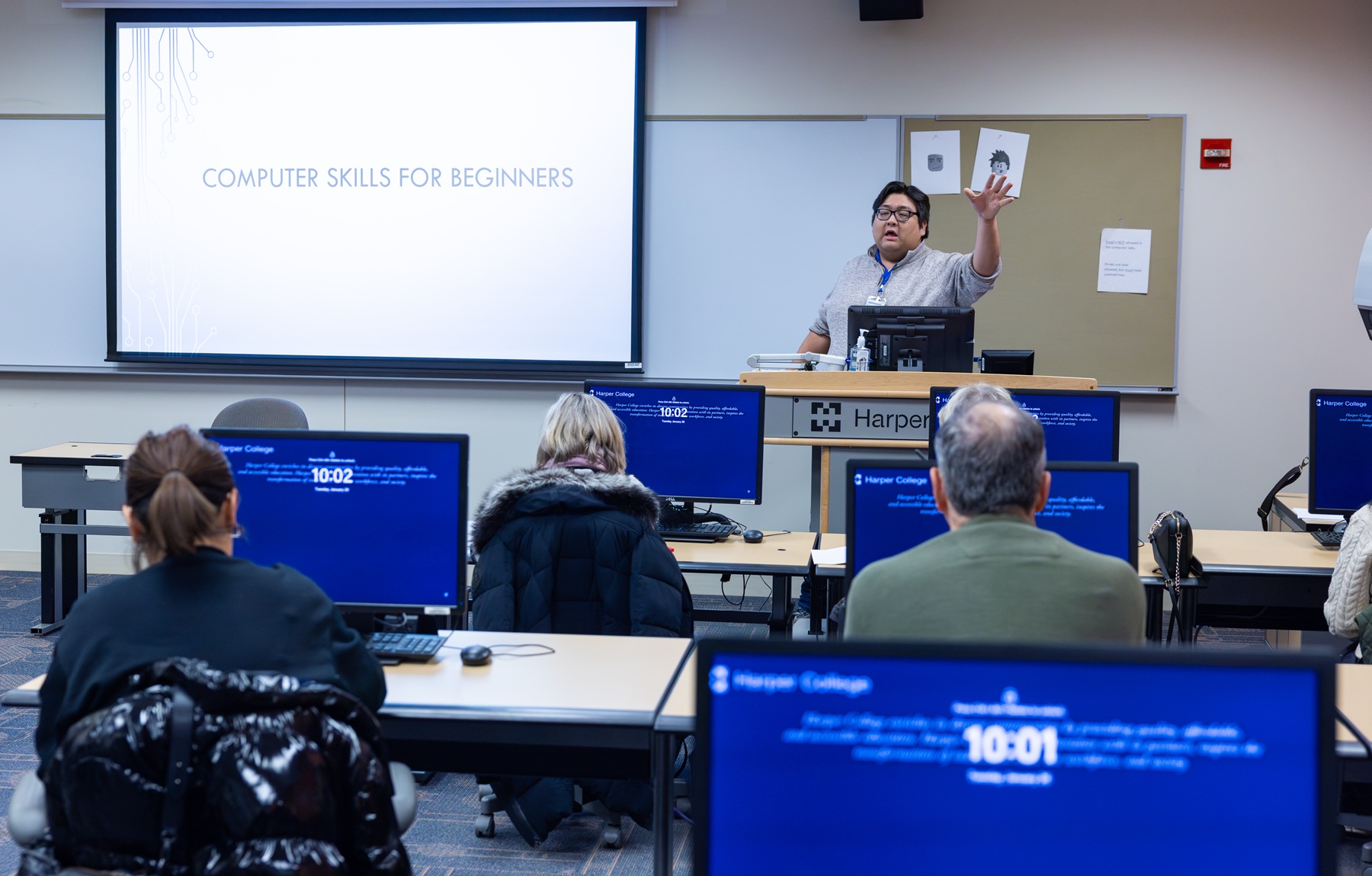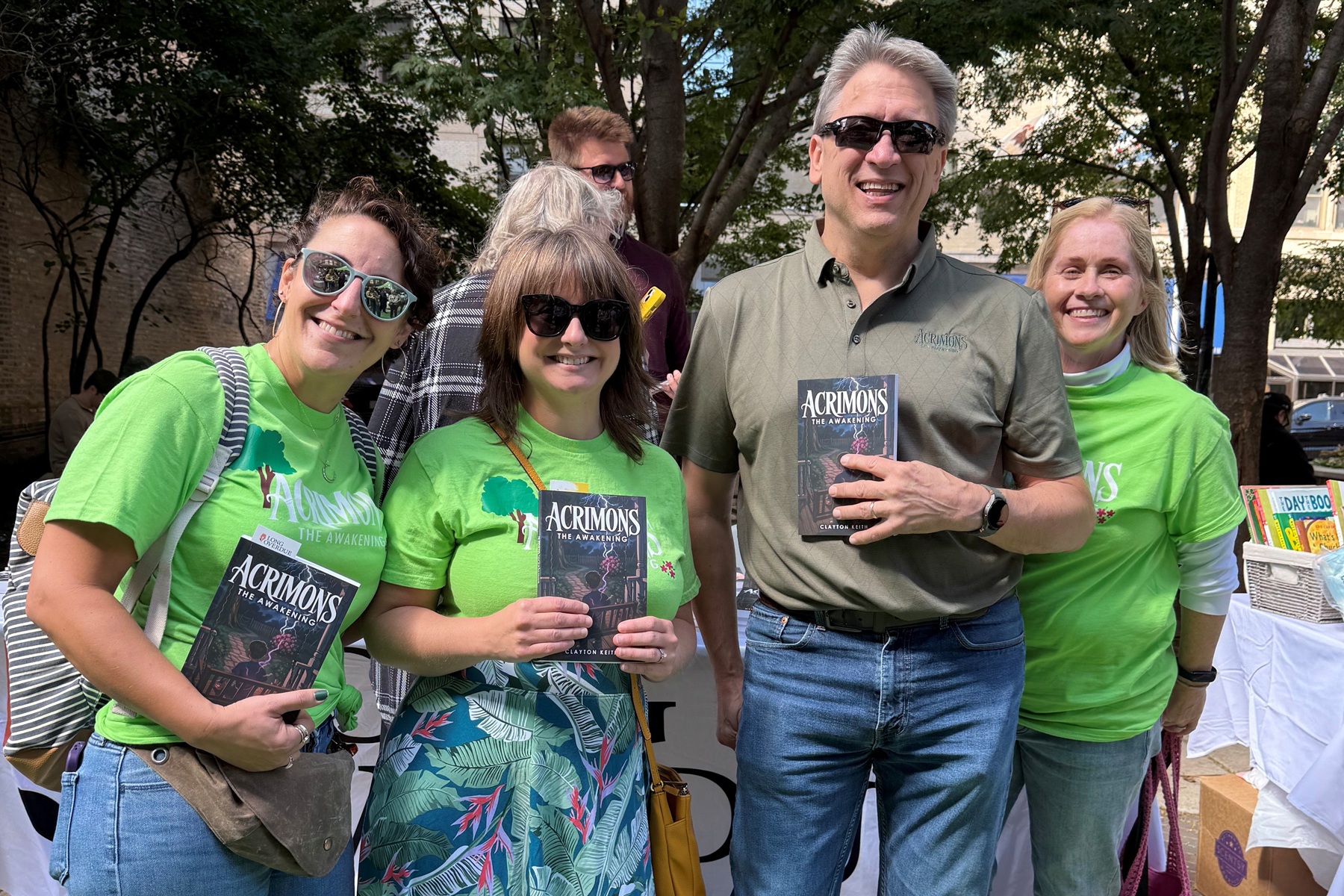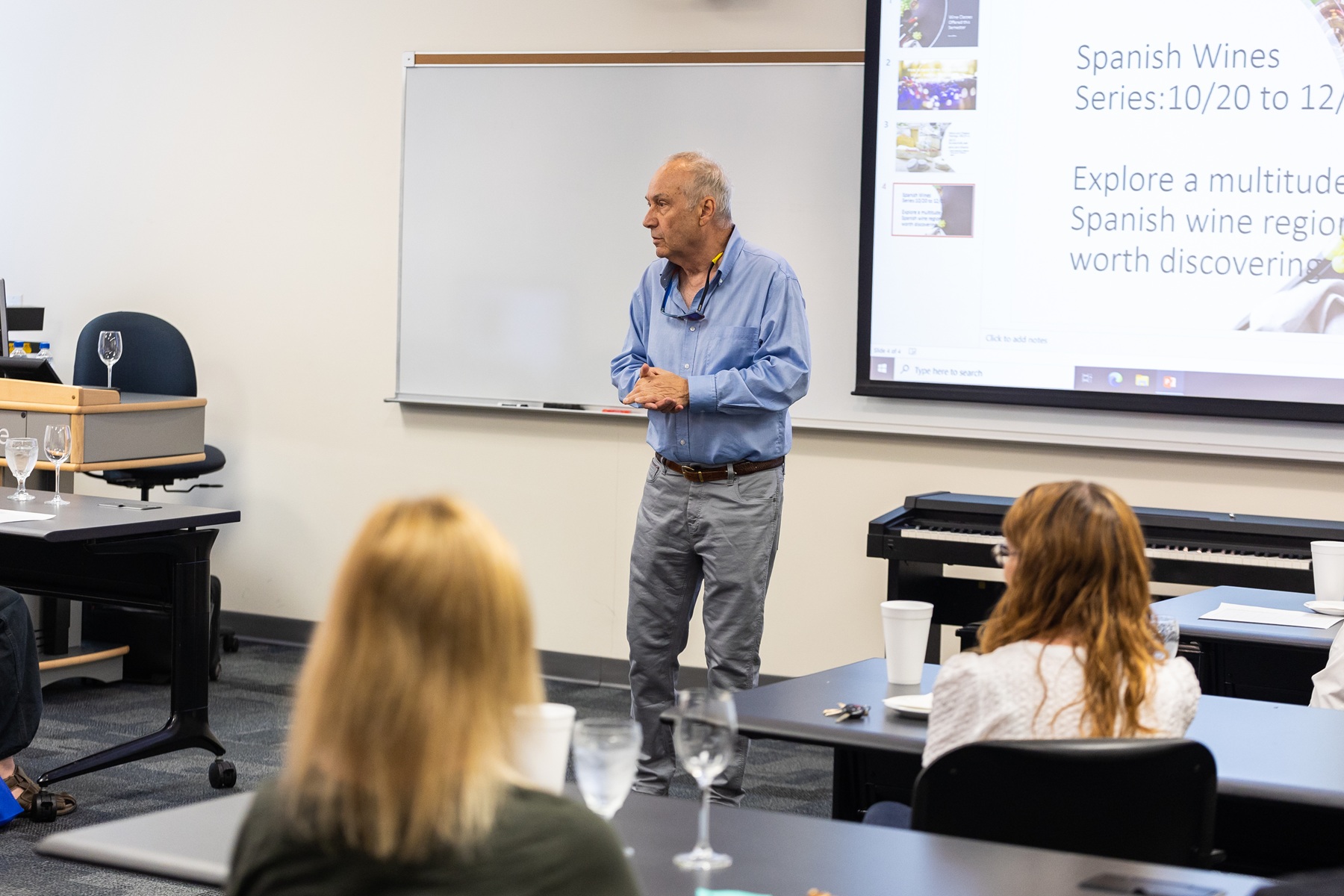
Harper’s CE program offers noncredit, personal enrichment courses to help individuals
of all ages enhance their skills and abilities.
In 2019, Brian Gary checked his mail and found a catalog from Harper College’s Community Education program. Impressed, the 59-year-old, who works in information technology and lives just half a mile from the Palatine campus, decided it was the perfect time to enroll.
Longing to rekindle his passion for writing, Brian took a course from Harper’s Writing Studio, which offers noncredit classes and workshops ranging from poetry to technical writing.
Flash forward six years later and Brian is a published author who recently debuted his children’s novel at Printer’s Row Lit Fest in Chicago. His book – Acrimons: The Awakening, written under pen name Clayton Keith – will also be featured at the Texas Book Festival in Austin later this year. Brian credits his CE experience for his success.
“I never planned on being published,” he said. “I wanted to leave something for my kids and grandkids and just to scratch that itch. But because of how comprehensive the courses are in preparing us not just to be good writers and tell a good story, but also to market ourselves and our idea and our product, it just happened.”
Harper College Community Education student Brian Gary (second from right) is a published
author who recently celebrated his debut children's novel at Printer's Row Lit Fest.
Members of his writing class cohort showed up in support of their classmate, wearing
custom T-shirts that promoted his book.
Writing is only one learning pathway offered by Harper’s CE program, which offers noncredit, personal enrichment courses to help individuals of all ages enhance their skills and abilities. Areas of study include computers and technology, music and arts, and business and careers. Students can learn world languages such as Spanish, French, Italian, German, Japanese and Arabic (which started this fall) while other classes center on personal interests ranging from improv to African cultures to photography.
Scott Cashman, senior manager of community, career and corporate education at Harper, said about 4,000 students enroll in Harper’s noncredit classes each year. Nearly 45% work full-time and 81% already hold a college degree, of which approximately 43% have a master’s or doctorate.
“We cover from ages 6 to 95. It allows [the community] to use the Harper College facilities and expertise for things that they’re really interested in,” he said. “We have music ensembles that play public concerts, and that’s one of the more rewarding parts of our program. Our arts program covers basic drawing to 3D arts, and we have a sculpture class that most colleges and universities don’t have. We have jewelry making. It’s a pretty comprehensive program.”
Harper's InZone summer camp is a part of CE and offers 150 summer classes including
arts and crafts, sports and STEM for children ages 6 to 14.
Harper’s annual InZone summer camp is a part of CE and offers 150 summer classes including arts and crafts, sports and STEM for children ages 6 to 14, with additional offerings for teens up to 18. CE also offers youth music ensembles, classes and lessons. Meanwhile, adults 50 and older can participate in seminars and lectures through a program for older adults.
CE’s Community Music and Arts Center contains all of the school’s noncredit music and arts programs, providing a wide variety of art, writing, music and dance classes taught by accomplished artists. The music program has a dozen ensembles and offers group classes and private lessons. The Career Skills Institute offers two-year small-group job readiness training for individuals with mild cognitive disabilities, ages 18 and older.
Noncredit courses are also offered by Harper’s Continuing Professional Education (CPE) program, which provides an assortment of professional development classes and workshops where students can earn certifications.
In addition, Community Education has a professional development department that issues badges that students can add to their resumes or LinkedIn profiles. CE offers opportunities for massage therapists, school nurses and other licensed professionals to earn the continuing education units (CEUs) needed to maintain their licenses and certifications.
According to Scott, the average CE student is 46, challenging the perception that most students are traditional college age. Harper’s CE program is deliberate about planning courses that are of interest to older adults.
“We offer a lecture series and discussion groups,” he said. “And starting in the spring, we’ll build more awareness our senior discount, where older adults 65 years and older can receive a 50% discount on tuition for personal enrichment programs.”
Colleges from across the country look to Harper’s CE program as a model for their
own and the program has been recognized by the Learning Resources Network.
Harper strives to increase new noncredit course offerings by 25% each year while continually updating existing classes to ensure they reflect the latest in technology and subject matter.
“Job training programs are being updated to ensure they incorporate communication and problem-solving skills in response to employer feedback,” he said. “I think the most exciting thing that’s on the rise is quantum computing. It allows you to do things much faster and in more depth. Eventually, it will be incorporated into most professions. We will launch our first classes in the spring of 2026 and I’m really hoping that by next summer, we’ll have an introduction to quantum computing course for kids, so they’ll have those skills when they’re ready to hit the workforce.”
Scott is proud that colleges across the nation look to Harper’s CE program as a model for their own.
“We’ve been recognized for excellence by the professional organization Learning Resources Network. Our staff presents at national meetings every single year,” he said. “Community Education is something that Harper College has taken really seriously for the last 25 years.”
Brian is equally serious about his writing, continuing to enroll in CE courses. As someone who wanted to write since high school but found that life always got in the way, he’s excited about this new facet of his life. He praises his Harper writing instructors, the CE program and the Harper community with helping him learn the fundamentals.
“I’m a fiction writer, so I really wanted to learn how to write and be engaging,” he said. “I’m mainly taking classes with Laura Ehrke. She’s a published author, and she’s fantastic, and the cohort we have is fabulous. They’re wonderful creatives, super supportive. It’s great to learn from others as well as from the person who’s teaching the class.”
For more information visit the Community Education website.